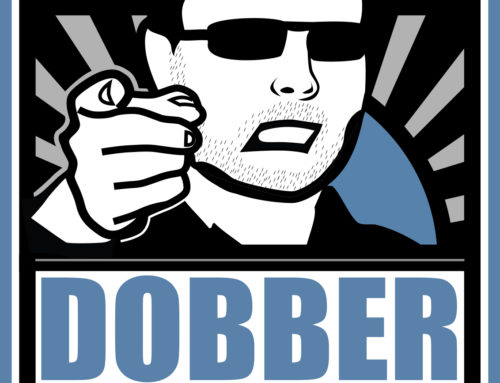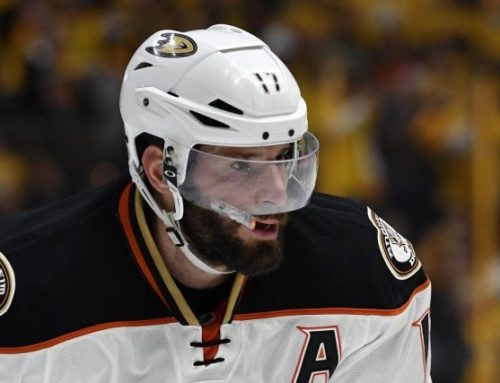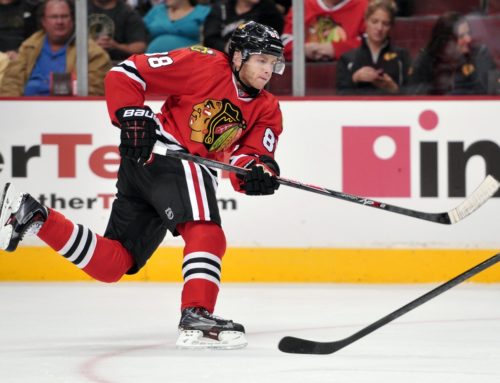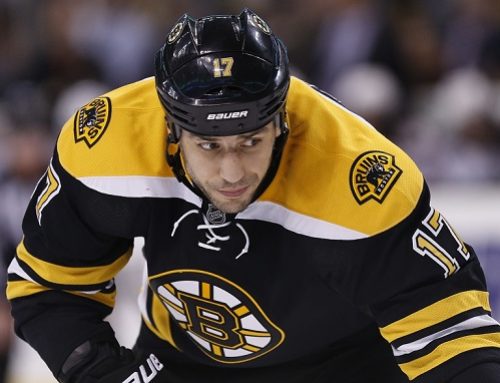
Read on to find out more about Rob Vollman's all-encompassing statistical resource, the Hockey Abstract.
Rob is a close friend of the site and one of the sharpest minds in the hockey statistical community. He has the rare ability to convey complex statistics in a way that makes sense, which is particularly difficult for a sport as complex and fluid as ice hockey.
Read on for an interesting interview and for more information about Rob's book.
How can Hockey Abstract help our readers become better fantasy hockey managers?
Two main ways – (1) as a sober second thought, and (2) to find things that deserve a closer look.
Hockey Abstract shows how hockey analytics can be used to confirm the results of traditional analysis. Furthermore, since nobody can be expected to watch all 82 games for all 30 teams, not to mention the European, Canadian Junior and U.S. College leagues, having a way to mine all of that to find the data you’re looking for is practically invaluable.
More specifically, the book shows you how to translate scoring data from other leagues to the NHL (chapter 14), how to find players with similar scoring totals in history and how to use that to predict future scoring (chapter 15), how to uses passes to predict whose assists will bounce back much in the same way you’re likely already doing with shots and goals (chapter 18), and how player usage can affect scoring totals (chapter 12) – just to name a few examples.
I used the player usage charts extensively in my advanced statistical analysis for both last year’s DobberHockey Guide as well as this year’s.
Where do you see the next big breakthrough in hockey statistics coming?
The next big breakthrough might involve improving the accuracy of the data we’re currently collecting, and finding more effective ways of presenting them.
For example, that’s why my Player Usage Charts caught on so quickly. It uses simple data that’s recorded the same everywhere you go, and it’s presented in a chart that everyone “gets”. The next breakthrough will be finding a way to do the same things in other areas of interest, like goaltending, defense, special teams or cap management perhaps.
Hockey analytics are at their best when they present useful data in a relevant way that complements the traditional ways we enjoy our sport.
From your analysis, who are a few players who should be ready to break out or bounce back in 2013-14?
Those who might enjoy easier assignments, or who really didn’t get the bounces last year.
Red = negative possesion player, blue = positive possession player. Click on the image to zoom in.
For example, a quick glance at Player Usage Charts explains Mikhail Grabovski’s offensive drop off was due to being used in the defensive zone, against top opponents, and with more mediocre linemates – he could catch fire with a return to his previous usage.
You can also look at a team’s shooting percentage when a player is on the ice, and see if it is lower than usual in order to tell who just wasn’t getting the bounces. For example, I see players like Jeff Skinner, Valtteri Filppula, and Scott Hartnell all had line mates shooting at lower clips than usual, and are bound to bounce back in better situations.
Using your method to translate scoring totals from other leagues to the NHL, who will win the rookie scoring race?
That’s hard to predict because a lot of it comes down to opportunity as much as it does actual talent. Analytics would point to Jonathan Drouin, Ryan Strome, Mark Scheifele and Dmitrij Jaskin as teenagers who could top 40 points with enough ice time. Other rookies like Tyler Johnson, Gustav Nyquist, Ty Rattie, Brandon Pirri, Nathan MacKinnon, Ryan Spooner and Mikhail Grigorenko all have the potential too, given the opportunity.
Oh, and though I think he’s too old to be a rookie, I’d keep an eye on Carl Soderberg too.
Who would be your first pick overall in a fantasy pool this year?
Taro Tsujimoto. Just kidding – the second chapter in the book actually uses hockey analytics to figure out who the best player in the league really is. First of all I would select a player over a goalie (chapter five) because goalies are a little less predictable, and clumped together in a tighter pack. I generally choose among the solid but overlooked goalies in the middle rounds, and focus my early picks on the players almost guaranteed to outperform the pack.
While specific categories can vary from league to league, I don’t think you’d go wrong in selecting Sidney Crosby first. There’s always an injury risk, of course, but his upside far surpasses anyone else’s.
While your approach to hockey analytics is one of the best-known, there are many other established statistical analysts out there with great websites. What sets your book apart?
Yes, we are blessed with a great number of great analysts and websites, but sometimes the most useful articles and statistics can be hard to find, making Hockey Abstract invaluable even just as a reference.
Writing a book instead of a website article also has the advantage of having the extra space to not only explain what the various statistics are, but to also show how they can be applied, and to practical questions. And also the space not only to show how analytics are used but also how they’re misused – and sometimes knowing the limitations of these statistics only comes with time.
Finally, it’s important to strike the right tone when talking about hockey analytics. My aim wasn’t to write a math textbook, but rather something that was fun and engaging for real hockey fans – hopefully that’s what’s reflected in my writing.
You can pick up Rob's book on Amazon.
A lot of his advanced statistical work helped with the work I did for the 2013-14 DobberHockey Guide, which you can pick up here.






 EDM
EDM STL
STL ANA
ANA BUF
BUF DET
DET NYI
NYI CAR
CAR MIN
MIN VAN
VAN
